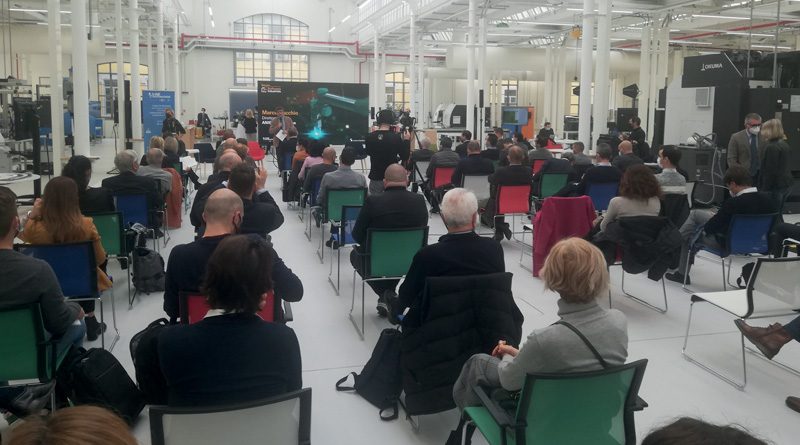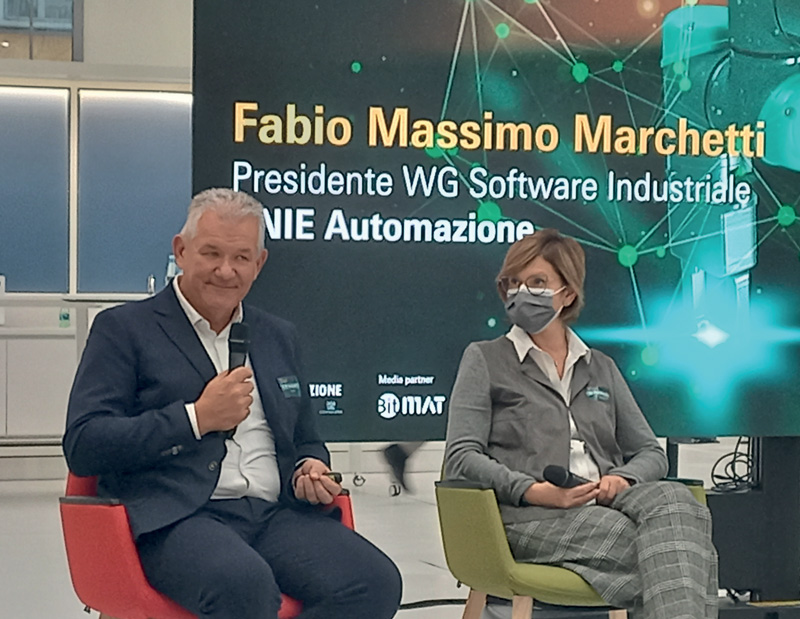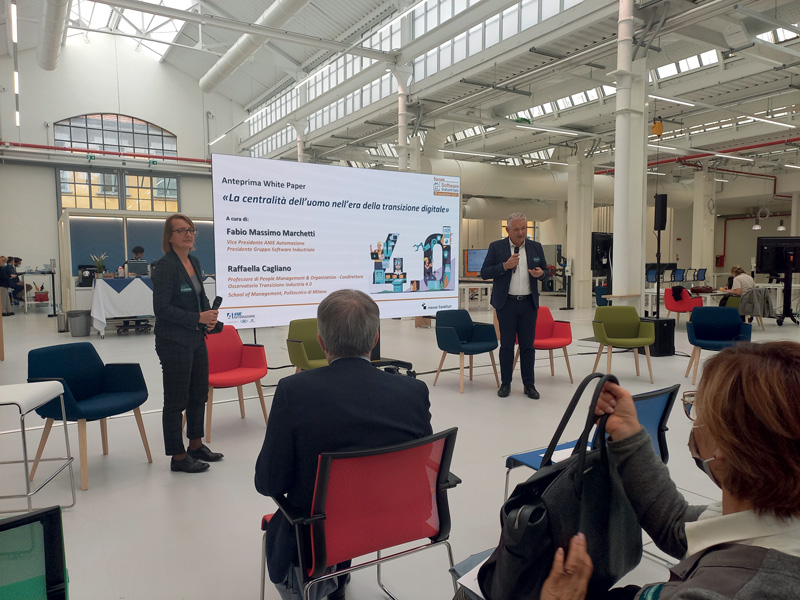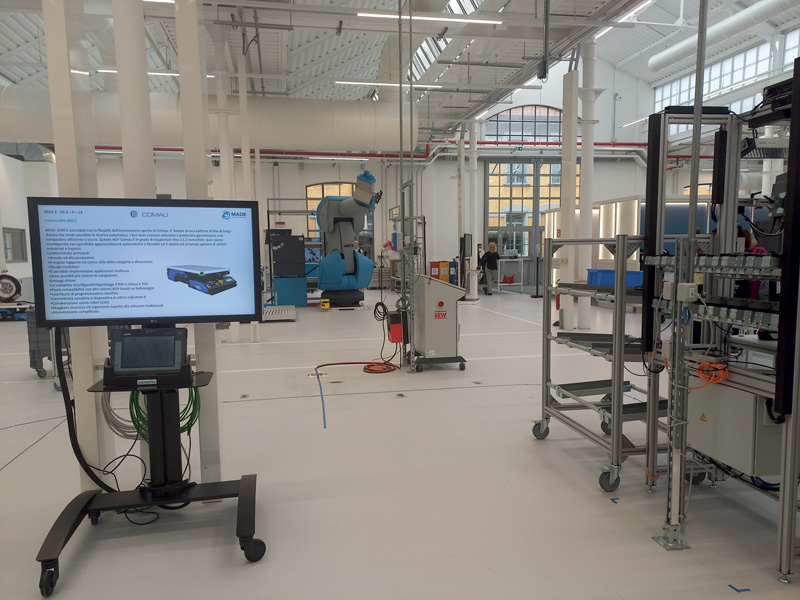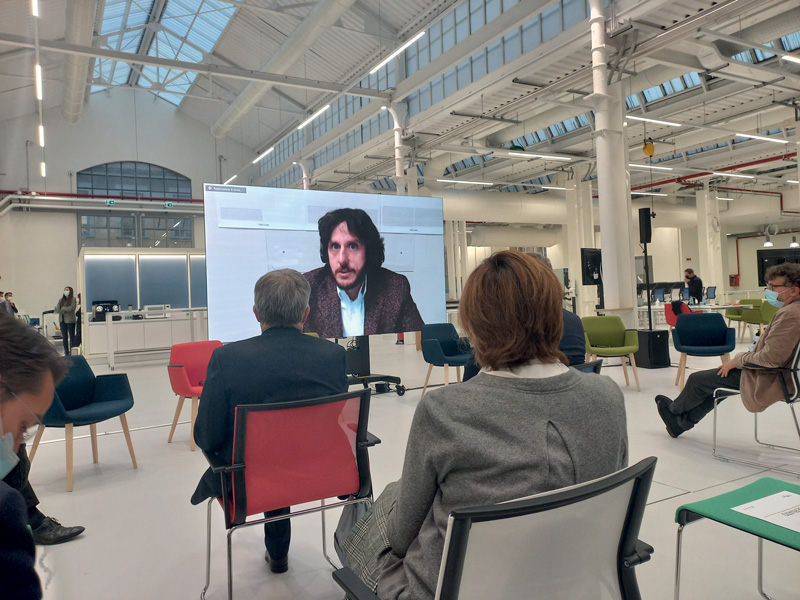Man at the heart of change
By funding Transition 4.0, the National Plan for Resilience and Recovery (PNRR) could further accelerate the growth of the Italian industry. At an interesting round table organized at the MA.DE – Industry 4.0 Competence Center in Milan, companies and system integrators discussed the opportunities, but also the responsibilities, facing our companies. A goal to be pursued which everyone agrees upon: transferring the benefits of technology to people.
On November 16th, an interesting round table focused on the theme of digital transition was held at MA.DE – Industry 4.0 Competence Center in Milan. The appointment was part of the process leading up to the Industrial Software Forum, the annual event organized by Messe Frankfurt, in collaboration with ANIE Automazione. What will the new opportunities (and also the responsibilities) for companies be in relation to the resources made available by Next Generation EU and the PNRR for the 4.0 transition of our industry? The round table, entitled “PNRR, digitalization, sustainability. Ready, steady, go’, was attended by representatives of companies and system integrators at the forefront of the digital transition. The day’s works were closed by the live streaming speech delivered by Marco Calabrò (Ministry of Economic Development), who provided a preview of what are expected to be the new industrial policy measures included in the PNRR.
People remain and will increasingly be at the centre of the processes
The program of the day, structured in three stages, also included the presentation of the new White Paper by ANIE Automazione’s Industrial Software group, entitled “The centrality of people in the era of digital transition”, written in partnership with Politecnico, Milan. “This is our latest effort – Fabio Marchetti, President of ANIE Automazione’s Industrial Software WG, said – assisted by Marco Vecchio, Director of ANIE Automazione who welcomed the participants together with Francesca Selva, Vice President Marketing & Events, Messe Frankfurt Italia. The White Paper focuses on the need to combine technological innovation with a profound reorganisation of the company, highlighting the importance of skills, which must be increased and developed precisely through the availability of data and the adoption of advanced technologies. The digital transition is now a mandatory step which can no longer be postponed if we want our industrial system to maintain or improve its competitiveness on both domestic and international markets. It is a must for every company, including SMEs, and it is also essential to make our companies more resilient when faced with non-synchronous phenomena”. “Thanks to the convergence of positive factors such as the “ figures” which speak of growth for the Italian industry after the lockdown period, and the policy of incentives and funds deriving from European and national policies,” Marchetti continued, “we are living in a particularly appropriate moment for the digital transition. However, the dissemination of a new culture, a new awareness, remains fundamental”. How can this goal be achieved? The White Paper identifies several areas of competence and functional areas.
The centrality of people in this process depends on the strategic vision of the use of technology, which must be used to create value. 4.0 technologies can enable different scenarios and it is up to companies to decide which to choose: use technology to replace manual work or use it to enhance, support (and therefore NOT replace) human work? The second scenario places persons at the centre of the process, but necessarily requires a review of roles. This is why it is essential to train new professional figures and develop new skills. And not just technological skills, but also management and relational skills. Transition 4.0 requires a broad set of skills, greater flexibility of tasks, greater security and inclusiveness.
PNRR, digitisation, sustainability… the partners take the floor
Italian industry is experiencing a moment of great change linked to the emergence of new business models resulting from the digital transition and the establishment of the Industry 4.0 model. This phenomenon is accompanied, as the great pandemic of 2020 comes to a close, by the revival of the global economy and the resources made available through Next Generation EU, the largest investment plan ever adopted by the European Community. The National Recovery and Resilience Plan (PNRR), by financing Transition 4.0, will be able to generate an important economic driver capable of providing a strong acceleration to the industrial sector. This was the theme of the Round Table attended by professionals and companies. Let us examine their proposals.
“Through its Digital Industries business line,” Fabio Massimo Marchetti said, this time as Head of Digital Industries at Var Group, “today we can guide companies along a path where the awareness of their own digital maturity becomes the starting point for an evolution capable of responding to the prospects opened up by the European PNRR investment plans and the ESG financial drive, strengthening its roots in the 4.0 paradigm and the centrality of data.”
Silvia Olchini, Software and Digital Sales Manager at Schneider Electric, highlighted the meaning of interconnection in SMEs. “ Networking,” she said, “enables the creation of highly automated integrated systems and every actor within the organisation must contribute to achieving this goal”. And regarding data, “Data must be collected, sorted and managed by competent people; there must be maximum collaboration within the organisation, where different technologies, such as computing systems, augmented reality and so on, can provide an important contribution”. Olchini concluded by talking about sustainability and its action on three levels: assets, processes and people. “Through the assets we can contribute to environmental sustainability, with energy efficiency, but also with the choice of highly circular components; through digitised processes we obtain efficiencies which free up resources, reduce waste and production errors, for greater sustainability, also economic. Finally, people gain benefits such as greater safety in interacting with machines, and also a greater ability to quickly learn new functions and tasks in an industry which is constantly changing.”
Mirko Magrini, MES Business Developer Wonderware Italy, emphasized the theme of sustainability/economic return: “To the idea of ‘beautiful and well made’, which until today has marked the success of Made in Italy all over the world, we must add a further step to reach the new goal: beautiful, well made and sustainable”. In other words, for companies, achieving economic sustainability is fundamental.
Luca Conti, Area Sales Manager of Beckhoff Automation, stressed the importance of a “data driven” philosophy where transparency and data sharing is fundamental, just like enabling IT/OT convergence, a challenge which is not always easy to face. “We need future-proof solutions”, he said, “ able to offer security and durability of the investment, but above all scalability and pliability according to what will be the inevitable evolution of the requests of the manufacturing industry in the coming years”. Morena Pietraccini, Expert Manager Engineering, Computer Science – Industries eXcellence.
emphasized the role of the system integrator, which is essential to help companies understand their own scenario and the players to be involved in the transition process. But how should they be chosen? Taking into account not only experience in computer science, but also practical experience and benchmarking skills. “System integrators,” he said, “provide the contextual knowledge, global capabilities and skills to support the entire life cycle of products and processes, from engineering to simulation, from production to use”.
Guido Colombo, President & CEO of Orchestra, also focused on the role of the system integrator who is, above all, a person. Working on people is fundamental, especially in SMEs. New technologies must be simple and bring an almost immediate benefit. “A tailor-made and comfortable suit,” he said, “for those who work in the field. Our role is to provide solutions based on enabling technologies which are simple, easy to use, sustainable for SMEs and which, by hiding the complexity of manufacturing, guarantee certain and measurable results in a short time. With Transition 4.0, SMEs have understood how to interconnect machines to their systems, bridging the gap which has always existed between Operation Technology and ICT. Now we think it is time to provide them with innovative digital solutions to proactively support the new young factory operators in their various tasks: from planning to the execution of production phases, both automatic, on machines and lines, and manual, to monitoring and tracking each process and piece, and controlling results in real time”.
Riccardo Borsatti, Head of Digital Enterprise Application Center at Siemens, closed the round table by shedding light on the decision-making process. Who should be in charge of driving Transition 4.0 within the company? “It is necessary,” he suggested, “to involve different company figures, not only linked to Operations aspects, within a structured change management program.”
Transition 4.0 Plan: a preview
The round table closed with the live streaming speech by Marco Calabrò, Ministry of Economic Development – General Directorate for Industrial Policy and Competitiveness – who provided a preview of the forthcoming Budget Law and the news related to the Transition 4.0 plan financed by PNRR, the National Recovery and Resilience Plan. The round table closed with the live streaming speech by Marco Calabrò, Ministry of Economic Development – General Directorate for Industrial Policy and Competitiveness – who provided a preview of the forthcoming Budget Law and the news related to the Transition 4.0 plan financed by PNRR, the National Recovery and Resilience Plan). On 16 November, the day of the meeting, the Budget Law had not yet been approved, but Calabrò still chose to retrace the steps of the National Plan over the past five years: a scenario made up of positive aspects, with a few clouds looming on the horizon. First of all, he emphasised the creation of awareness, and the success of what he described as ‘a fundamental cultural operation’. It is also important to have carried out this operation within a system approach, which is necessary given the complexity of the plan. Another merit is certainly that of continuity, which allows companies to plan investments. After five years, Calabrò judges the balance to be positive, despite the fact that a considerable percentage of SMEs seem not to have been informed about the Transition 4.0 plan or do not intend to adopt it. Another grey area is a situation whereby mainly northern Italian companies are interested in following the path towards digitisation. We will soon see what decisions and corrections will be made to the first draft of the plan, in the hope that support will continue to be given to training activities which, as we have seen, are fundamental to maintaining or enhancing the competitiveness of our companies.
